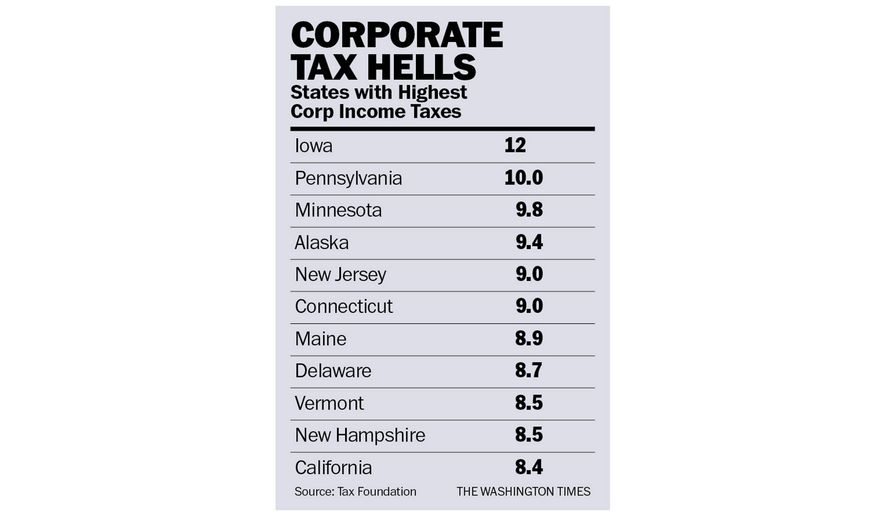OPINION:
Wisconsin Sen. Ron Johnson has caused a bit of a hullabaloo by complaining that small businesses don’t get the benefits that corporations do in the Republican tax plan. Mr. Johnson has credibility here because he is one of those rare breeds in Congress who actually knows something about running a business — having done so for 30 years.
Mr. Johnson’s beef is that the effective tax rate on a successful small business under the House plan is almost 36 percent (as opposed to 39.6 percent today). This compares the new 20 percent rate for a corporation like GE or Boeing. He’s threatening to vote no if this doesn’t get fixed, and it’s hard to see how a plan can pass with 50 votes without him.
The tax gap is not as unfair as it may at first seem. Unlike a small business, the C corp. is double taxed (because its owners also pay a dividend and or a capital-gains tax of 23.8 percent on top of the 20 percent corporate tax) so the tax rate that Apple or Home Depot pays would be close to the 36 percent a small business pays. But its also true that many of the shareholders of American corporations are not subject to tax — such as university endowments, many pension funds, charities, etc.
In any case, it would be highly desirable for policy and political reasons for the Republican tax plan to provide more relief for small businesses — which create more than half the jobs.
One solution is to go back to the original Trump and House proposal and cut the highest individual income tax rate to 35 percent — which is the rate most profitable small businesses pay. Another idea is to increase the exclusion on small business income from 17 percent (in the current Senate plan) to closer to 20 percent. This would get the effective rate down to just above 30 percent for family-owned businesses. Hooray.
How can we make that happen without breaking the budget rules? These rules restrict Republicans to a $1.5 trillion tax cut over 10 years. They are already at that limit and to go one penny over that amount would require and unattainable 60 votes in the Senate.
So the added small business tax cut has to be “paid for.” Luckily there is a very smart and economically sound way to do that. Eliminate the deductibility of state and local taxes for corporations. It is wildly unfair for a small business to lose this deduction, but for corporations to keep it.
The strong case for elimination of state and local tax deductibility equally applies to families, small businesses and large corporations. It isn’t fair in any of these cases for tax filers located in low tax jurisdictions to pay more tax to subsidize those located in high tax locales.
The only explanation for taking away the deductions for the small businesses and not the corporations is that corporate America has more political muscle in Washington.
Some have argued that if corporations can no longer deduct their state and local taxes, the effective rate on these companies will rise to about 23 or 24 percent — thus negating some of the value from cutting the rate in the first place.
That’s wrongheaded thinking for several reasons. First, in states that have no corporate income tax, such as South Dakota and Wyoming, the rate will still be 20 percent. So if companies want to pay closer to 20 percent, they are going to have to move to a low tax state like North Carolina or Utah.
Should we really cry tears for Google or Apple if they have to pay an effective corporate tax rate of 23 percent in California, only because these companies choose not to move out? Getting rid of the deductibility of state and local taxes will force the highest corporate tax states to lower their rates, or fewer corporations over time will headquarter there. The chart shows which states have the highest corporate rates.
The elimination of deductibility of state and local taxes will also encourage more privatization of municipal services. Why does the government, rather than a private company have to collect a company’s trash? This will also help private schools compete with failing public schools and thus improve education and the workforce.
So if Republicans get smart they can achieve a two-for-one policy victory here. They can give an additional tax cut of at least $100 billion to small businesses and they can fix the inequity in their tax plan by putting small and large businesses on an equal footing. Ironically, Democrats have been trashing the Trump tax plan as “tax breaks for large corporations.” If they want to now go out and defend one of the most indefensible tax write-offs for corporate America in the entire tax code, let them.
• Stephen Moore is a senior fellow at the Heritage Foundation and an economic consultant with Freedom Works. He served as a senior economic adviser to the Trump campaign.




Please read our comment policy before commenting.